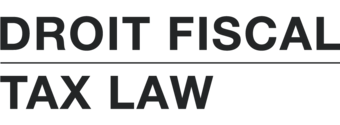
Photo by Kirill Balobanov on Unsplash
The taxpayer was a contractor who was in business for over 25 years. He then started to attend meetings from Paradigm Education Group after talking to a friend. Unbeknown to him, his life was about to take a turn for the worse.
From early 2006 onward, although the taxpayer was still conducting work as a contractor, he started to characterize what he was doing as a “non-commercial personal endeavour” and stopped reporting this income in his tax returns. Because he characterized this income as a personal endeavour, he took the view that it was no longer a taxable “source of income”. The Canada Revenue Agency (“CRA”) reassessed him for the 2009, 2010 and 2011 taxation years for unreported income of $178,274, $196,490 and $250,392, respectively, and imposed on top of that gross negligence penalties.
In his decision, D’Arcy J. wrote:
34 The Appellant’s position is that during the relevant years he undertook the activities relating to the installation of windows and doors as a personal endeavour and thus those activities do not constitute a source of income under the tests set out in Stewart. Another way of looking at this argument is that a taxpayer can elect not to be subject to income tax by declaring his subjective intention to carry on activities such as those in question here as a personal endeavour. […]
40 On the objective facts before me, it is clear that the activities of the Appellant relating to the installation of windows and doors and providing carpentry work were undertaken in pursuit of profit. The activities contained no elements that would suggest that they should be considered a hobby or other personal pursuit. In fact, the Appellant admitted on cross-examination that the activities were not a charity or a hobby. The activities were clearly commercial; they contained no personal elements. […]
42 Further, the activities were exactly the same activities as the activities the Appellant carried on before April 21, 2006. The Appellant treated the activities carried on prior to April 21, 2006 as producing income from a business.
In short, the case couldn’t be clearer that the taxpayer was carrying on a business, except for his personal belief that he wasn’t.
With regard to the gross negligence penalties, D’Arcy J. wrote:
53 The Appellant carried on exactly the same business before and after April 21, 2006; however, he chose to stop reporting the income from the business after April 21, 2006. The Appellant is an intelligent individual who made a conscious decision to stop reporting his income from the Contracting Business and to use Mr. Stanchfield’s nonsensical argument to try to support the failure to report his income. As a result, the Appellant knowingly made a false statement or omission in his returns.
54 It is also my view that the Appellant made the false statement or omission in each of his 2009, 2010 and 2011 tax returns in circumstances amounting to gross negligence. […]
61 A reasonable person presented with Mr. Stanchfield’s nonsensical argument would immediately realize that there was something wrong with it. A person cannot suddenly elect to have his income from a business not be subject to tax.
62 The Appellant carried on the same activity after April 2006 as he carried on before, yet he takes the position that the activity became non-taxable in April 2006. This is patently absurd. In my view, a reasonable person would not believe that an activity of a commercial nature, such as the provision of contractor services, would suddenly become non-taxable because the provider of the services decided to label the provision of the services as a “personal endeavour”. [Emphasis added.]
In light of the fact that D’Arcy J. was presented with such “nonsensical” and “patently absurd” arguments, it was not hard for him to find that the taxpayer was “wilfully blind”, which is generally understood as subjectively knowing that the statements made in the tax returns were probably false but deliberately choosing not to make further inquiries because subjectively knowing or strongly suspecting that the inquiries would corroborate the knowledge that the statements were indeed false.
In the end, the taxpayer had to pay the taxes he owed, plus the gross negligence penalties, plus the accrued interest, plus the court costs. His appeal to the Federal Court of Appeal was also dismissed, with costs.
The worst in all this is that the taxpayer admitted in cross-examination that he consulted an accountant and a tax lawyer, who both disagreed with what he was doing. Yet, he still went ahead with it. This is stubbornness pushed to the extreme.
